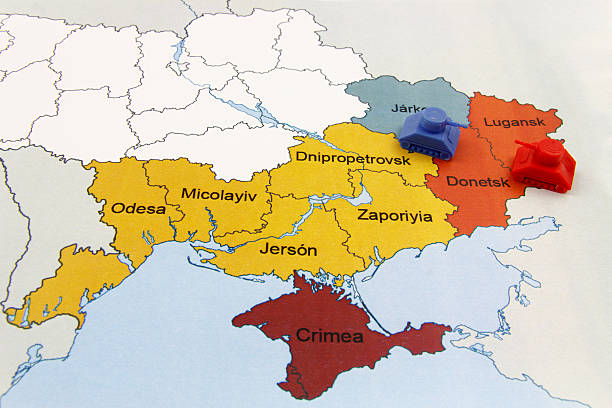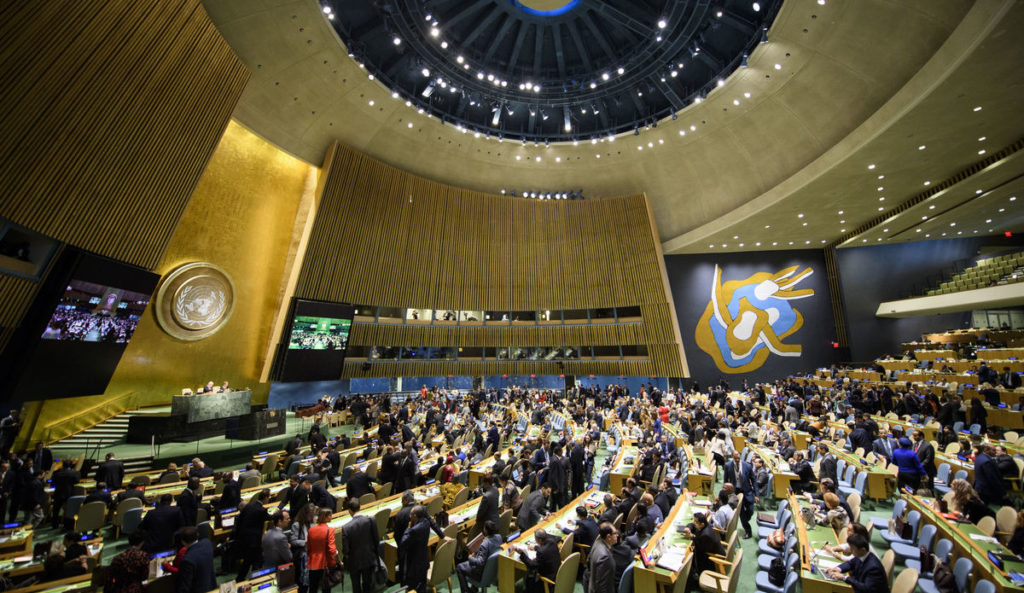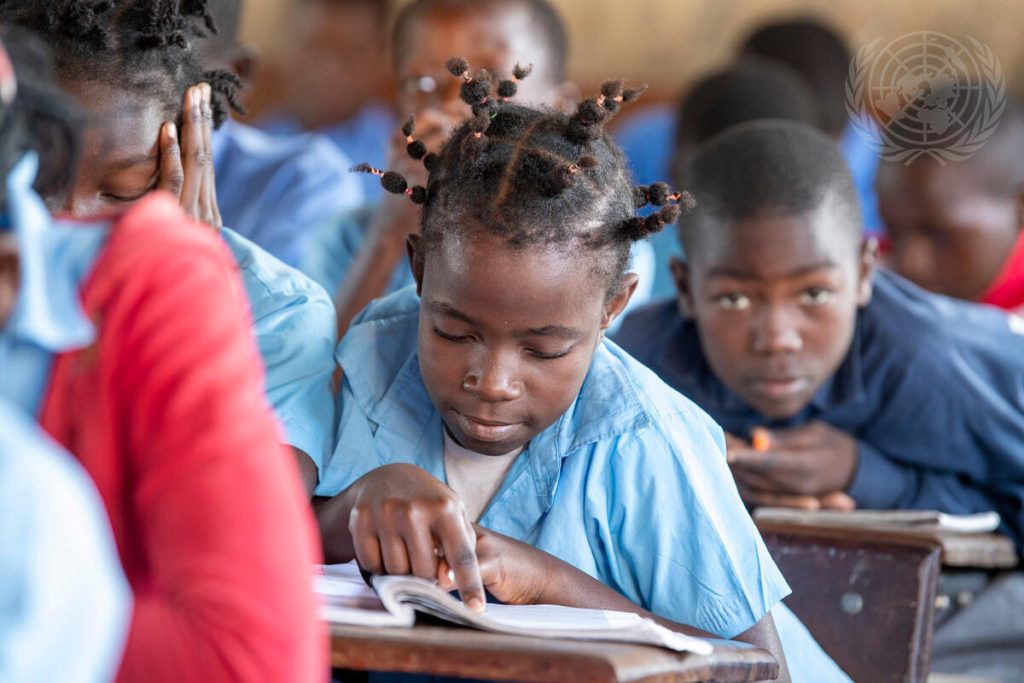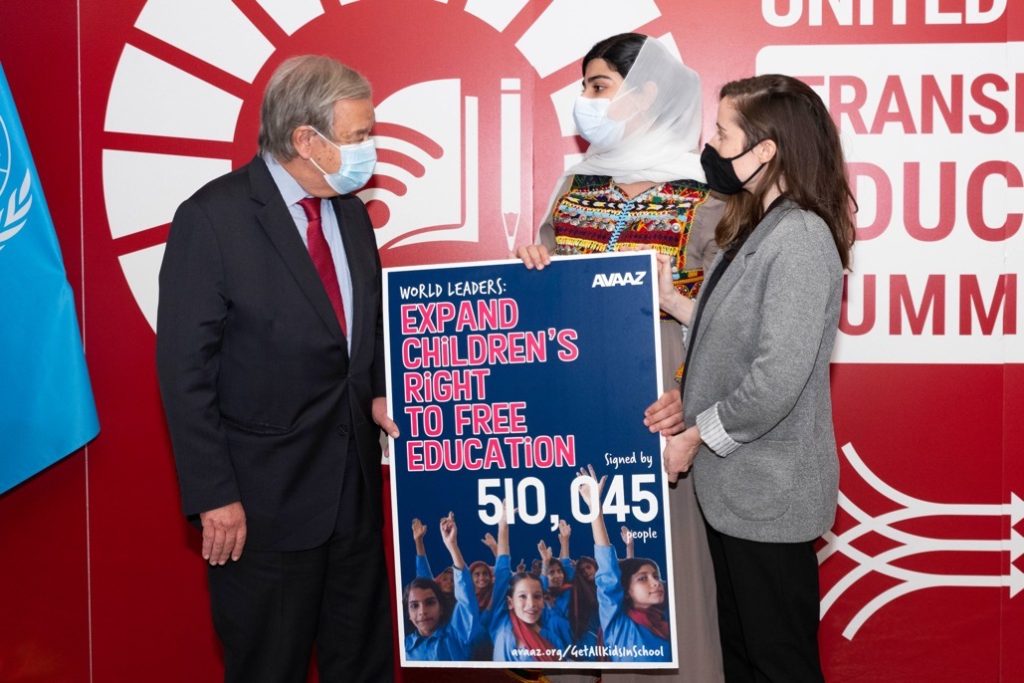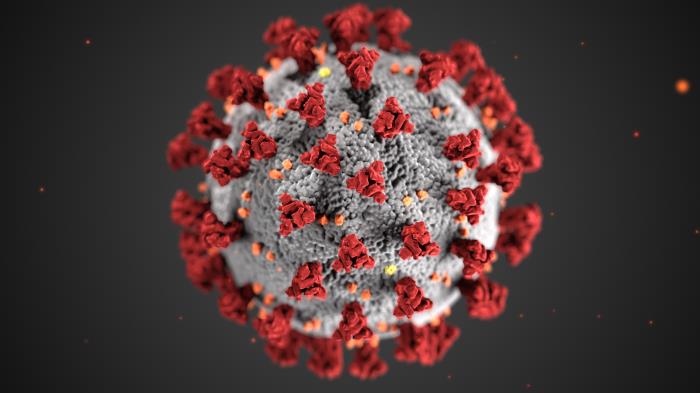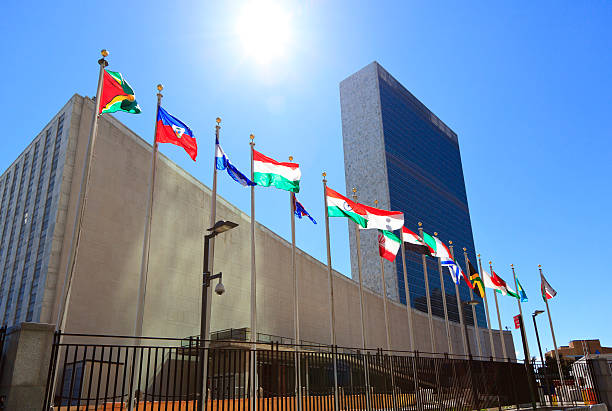UPDATE: Russia blocks resolution condemning its annexation of Ukrainian regions
New York, September 30 – Russia cast a negative vote and effectively blocked UN Security Council members from adopting a resolution that would have condemned President Vladimir Putin’s annexation of four regions in Ukraine as “illegal.”
Ten of the 15 council members voted in favor of the resolution while four of them abstained. The four abstentions are China, India, Brazil and Gabon. Russia’s veto automatically killed the resolution. The veto power belongs to Russia, the US, UK, France and China which permanent council members.
The 10 members who cast the positive votes are: the United States, United Kingdom, France, Albania, Ghana, Ireland, Kenya, Mexico, Norway and United Arab Emirates.
The council held a meeting to discuss issues of peace and security in Ukraine and to vote on the resolution on the same day Putin formally signed documents in Moscow to seize Ukrainian regions of Luhansk, Donetsk, Kherson and Zaporizhzhia and declared that Ukrainians living in the areas are “Russian citizens forever.”
In the council meeting US Ambassador Linda Thomas-Greenfield urged council members to secure and protect the sovereignty of all states to ensure that “no state can take over another state.” She said the US and its supporters will now take the resolution to the 193-member UN General Assembly, where there are no vetoes.
“We want to show that the world is still on the side of sovereignty and protecting territorial integrity,” she said.
British Ambassador Barbara Woodward said in an address to the council that the area Russia is claiming to annex is more than 90,000 square km. “This is the largest forcible annexation since the Second World War.”
“Council members have voted in different ways. But one thing is clear. Not a single other member of this Council recognizes Russia’s attempted illegal annexation of Ukrainian territory. Russia’s veto doesn’t change that fact.”
“The international system is being assaulted in front of our eyes,” she said. “Russia will not succeed in this illegal imperialist war. The only question is how much damage they do, how many lives they waste, before they realize that.”
The Russian seizure of the Ukrainian regions was strongly condemned by UN Secretary-General Antonio Guterres as an escalation of the seven-month war in Ukraine.
“In this moment of peril, I must underscore my duty as Secretary-General to uphold the Charter of the United Nations,” Guterres said in a statement issued the day before Putin signed decrees annexing the Ukrainian territories in a ceremony in the Great Kremlin Palace. The annexation followed referenda conducted by Russia in the four territories, which the UN said were faked and not legal.
“The UN Charter is clear,” Guterres said. “Any annexation of a state’s territory by another state resulting from the threat or use of force is a violation of the Principles of the UN Charter and international law.”
“Any decision to proceed with the annexation would have no legal value and deserves to be condemned,” Guterres said. “The position of the United Nations is unequivocal: we are fully committed to the sovereignty, unity, independence and territorial integrity of Ukraine, within its internationally recognized borders, in accordance with the relevant UN resolutions.”
The UN leader reminded Putin that Russia is one of the five permanent members of the 15-nation UN Security Council, and “it shares a particular responsibility to respect the Charter.” (By J. Tuyet Nguyen)
United Nations correspondent journalists – United Nations correspondent journalists – United Nations correspondent journalists – United Nations journalism articles – United Nations journalism articles – United Nations journalism articles – United Nations News – United Nations News – United Nations News
UPDATE: Russia blocks resolution condemning its annexation of Ukrainian regions Read More »


